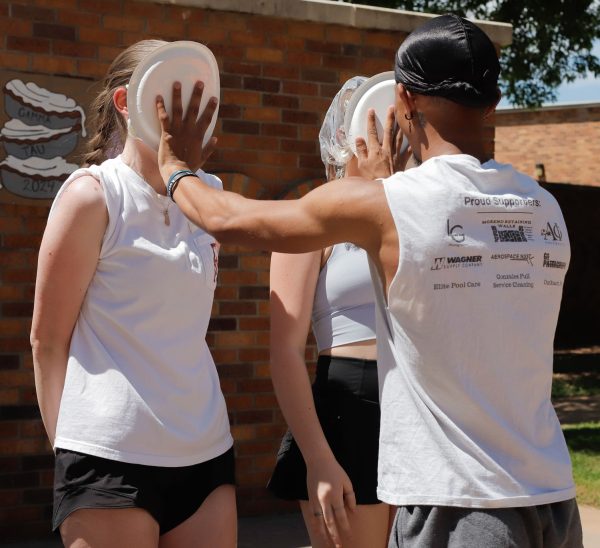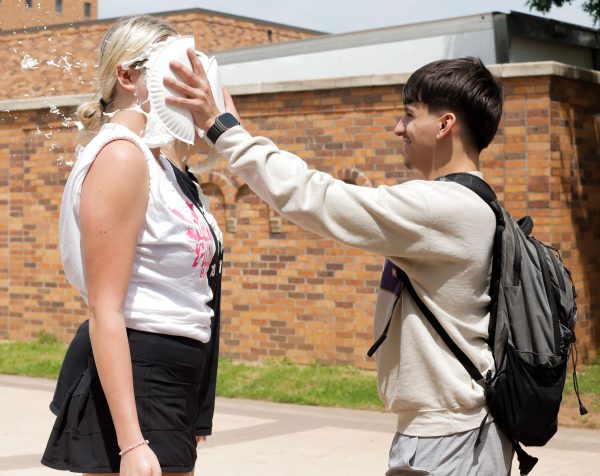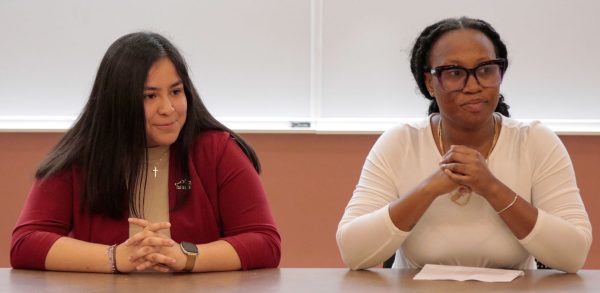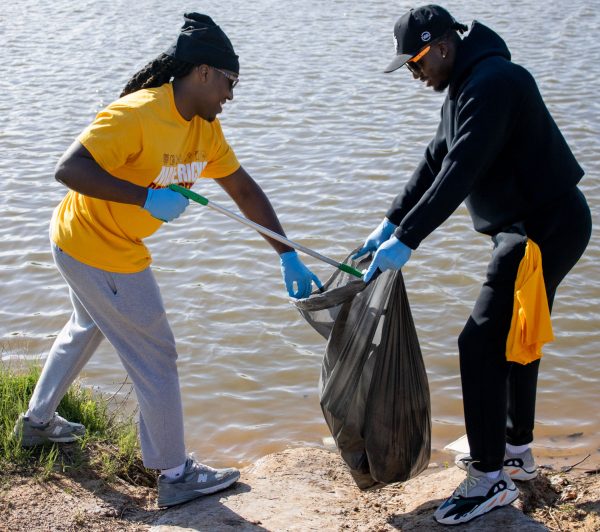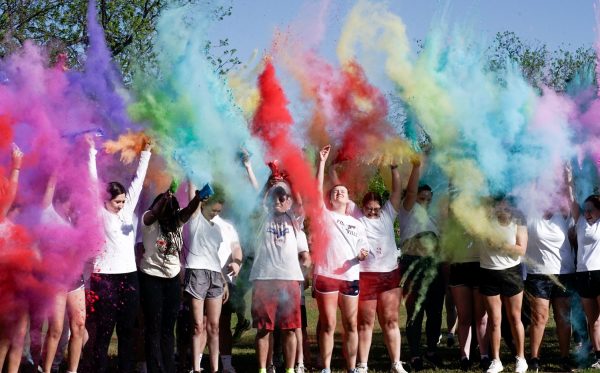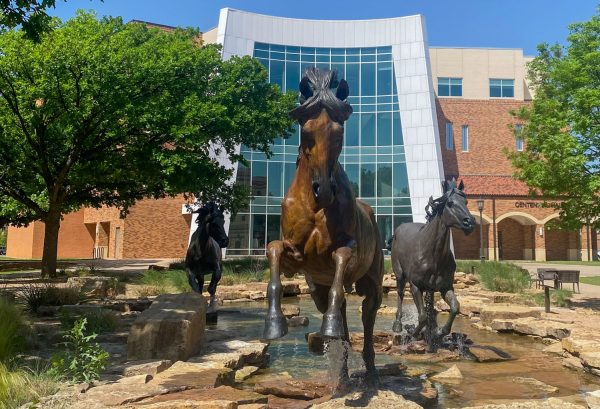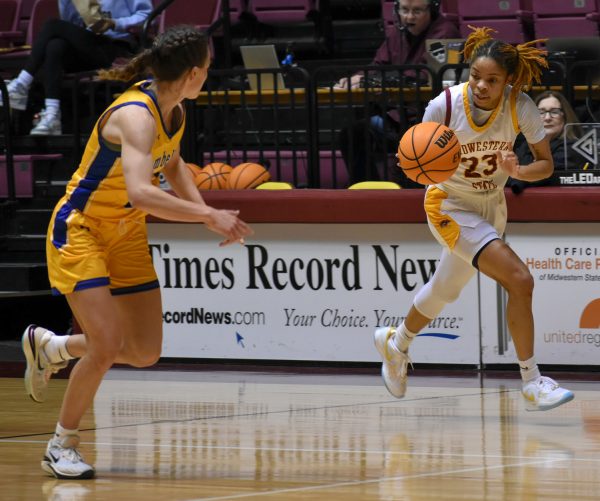Coliseum parking causes conflict on campus
In and out. Faculty, staff and students. Residents and commuters. In and out. Everyday the parking spaces on campus wait to be filled.
Patrick Coggins, chief of police, said his officers use a formula of decided ratios to make sure all people have a place to park. Each year the police officers go around each parking lot on campus at the peak time to get a good estimate for a parking ratio. This ratio shoes the numerical relationship between resident, commuter and reserved spots and how many spots are being used in a specific area during the day to ensure there are enough spaces for everyone.
“At the heart of campus, the lots are about 90 percent full at the heaviest times,” Coggins said. “As you move out from the heart of campus you get into the 75 percent usages and there are places that are only 20 precent full at the heaviest times. So, there is parking available, it’s just not right outside the door where people want it.”
In the month of March, law enforcement gave 17 tickets and zero warnings, on Council Drive from Hampstead Lane to Midwestern Parkway. This area consists of the lot in front of the coliseum as well as west of Hardin. The coliseum is home for many coaches, athletes, trainers and students who spend much of their day there.
Tayler Schott, biology sophomore, said, as an athlete living on campus, it’s inconvenient to not be able to park in front of the coliseum and said she wishes it wasn’t only commuter and reserved parking.
“Parking at the coliseum would be so convenient for all athletes because this is where we spend a majority of our time,” Schott said. “However, since only commuters can park there and not be at risk to get a ticket, it makes going to practices, treatment and even meetings difficult to get too especially when you’re on the other side of campus.”
Schott sustained an injury while playing soccer making getting from place to place on campus a challenge.
“With injuries, it’s especially hard because I must walk all the way from my dorm instead of being able to drive and park,” Schott said.
Erin Alexander, biology junior, said she agreed injured athletes should be able to park at the coliseum but as a commuter herself, doesn’t think the parking should be open to all athletes.
“I don’t think all athletes should be able to park there because there would be no parking left,” Alexander said. “We don’t have adequate parking on campus as it is. But I feel like there should be some kind of temporary sticker, so if you’re injured you are able to park as close as you can.”
Coggins said students can make arrangements on a case-by-case basis and understands athletes may need special arrangements. He said these arrangements could be made through the athletic department in the cases of a team returning late at night as well as injuries that occur.
“As a general rule, if specific arrangements need to be made for safety and health reasons that is something that can be considered,” Coggins said. “But to open up and say that anyone can park here [coliseum] you open up to all the issues of ratios of commuter vs. resident vs. reserved are allocated throughout the campus.”
Resident, commuter and reserved parking is all divided according to needs, but Alexander said she feels like commuter parking is less accessible.
“Personally, I believe that a commuter has a harder time finding parking close,” Alexander said. “Being an injured, commuter athlete I have to drive to all my classes, so I don’t put more stress on my back. The parking on campus is not ideal for anyone that is hurt. I do think that injured athletes should be able to park as close to the coliseum as they can.”
Drake Dusek, business freshman on the men’s basketball team, said all athletes should be able to park at the coliseum because of the large amount of time they spend there each day.
“Athletes should be able to park at the coliseum because a lot of their events are primarily focused around that area including the soccer fields, basketball courts, volleyball courts,” Dusek said. “Everyone [student-athletes] pretty much originates from that area so it would be best if they would be able to park there.”
Chelsea Knaack, women’s soccer assistant coach, said she was unaware athletes were not allowed to park in front of the coliseum. Knaack said she would be concerned if the rule allowed all athletes to park there, limited spots would remain for staff. However, she understands athletes spend hours there and it could be beneficial.
“Athletes should be able to park over here [coliseum], which is what I thought they were doing anyways,” Knaack said. “It would be beneficial if there was some sort of tag for athletes. They are here a lot because of their practices, locker rooms, treatment, and study hall so they should be able to park here.”
THOUGHTS FROM OTHER ATHLETES:
Taylor Lampe, exercise physiology junior | “Athletes should be able to park in front of the coliseum because that is where their locker rooms are at as well as where they have to get treatment done.”
Tiara Wilson, exercise physiology sophomore | “Athletes should be allowed to park in the coliseum parking spots during practice, study hall, training, treatment and game hours. I remember parking my car on the side of the coliseum before an away match over the weekend, and when we came, I had my first MSU parking ticket on my windshield. I didn’t realize it was a reserved parking area until a few days after getting my ticket, and even then, I didn’t think it mattered because I parked there over the weekend.”
D’monta Harris, psychology junior | “Athletes should be able to park at the coliseum due to the fact they are scholarship athletes and the coliseum is part of them being here.”



